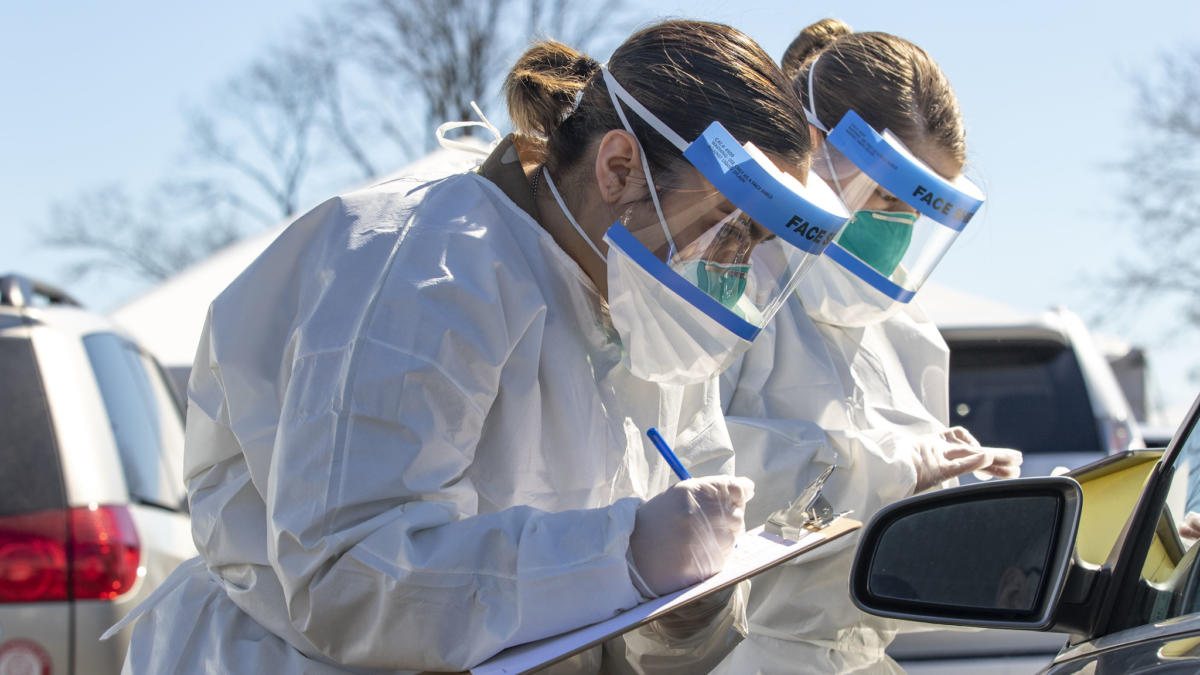At the one month mark from Philadelphia’s stay-at-home order, even with new COVID-19 cases consistent for the last week at about 500 to 600 per day, “the threat of this virus is still very much with us,” Mayor Jim Kenney recently said.
That is why Philadelphia is vastly expanding COVID-19 testing, immediately adding 12 new sites and opening even more locations in the coming weeks, including one in Kensington, according to city officials. Eight of the new sites are in health clinics that the city runs; four are in health centers regulated by the federal government.
“It’s still too early to tell if the epidemiological curve has started to bend,” Philadelphia Department of Public Health spokesperson James Garrow wrote in a recent email to PW. “There are signs that things might be turning that way, but that could change at any point. The Health Department’s goal is to drastically increase the availability of COVID-19 testing throughout the city – that includes in Kensington.”
The hope is to get a handle on the spread of COVID-19 through expanded testing, Philadelphia Health Commissioner Tom Farley said. This could be particularly important in Kensington where there is a high rate drug use, sex work, and people experiencing homelessness.
“This is a high-risk population,” said Laura Bamford, a physician who works in Kensington. “The city has talked about being able to quarantine people who are homeless or unstably housed, but if we don’t know the scope of the problem, it’s really hard to plan for that quarantining. So we need to start to get a sense for what the prevalence [of COVID-19] is in the population.”
“The city has talked about being able to quarantine people who are homeless or unstably housed, but if we don’t know the scope of the problem, it’s really hard to plan for that quarantining. So we need to start to get a sense for what the prevalence [of COVID-19] is in the population.”
– Dr. Laura Bamford, staff physician, Philadelphia FIGHT
Talks are ongoing about COVID-19 testing in Kensington in conjunction with Philadelphia FIGHT Community Health Centers, Prevention Point Philadelphia, and the city’s Department of Public Health. One of the issues holding up the testing is a short supply of face shields and gowns, according to Bamford, a staff physician at Philadelphia FIGHT and medical director of Clinica Bienestar, a comprehensive HIV primary care clinic in Kensington.
Philadelphia FIGHT and Prevention Point Philadelphia founded Clinica Bienestar more than six years ago inside Prevention Point, a needle exchange that also provides extensive medical and other public health services in Kensington. Where exactly the Kensington test site will be located is still unclear, PW has learned that the site could be staged along Monmouth Street outside Prevention Point.
There has been limited testing for COVID-19 in Kensington with only a handful of patients seen in-person at Clinica Bienestar. But most of their work with patients in recent weeks has been through telemedicine, Bamford said.
Often, this involves Prevention Point case managers connecting Bamford and her colleagues on the phone with clients, since about 50 percent of their population is experiencing homelessness or unstably housed and does not have the technology or often even phones. People who think they are sick should call their health care providers and talk about their symptoms and anxieties, according to the Centers for Disease Control and Prevention. But many of these same Kensington residents do not have primary doctors.
So in addition to helping understand the scope of the pandemic in Kensington, a new test site might serve as a “first entry into medical care” for those without primary care physicians, Bamford said.
The Philadelphia Department of Public Health, along with the Health Federation of Philadelphia, is working with Federally Qualified Health Centers across the city, with the city providing testing supplies and personal protective equipment for the 12 new testing sites in other underserved neighborhoods.

These sites must make testing available three days a week and preferably five days a week and provide the Department of Public Health regular data of the number of people tested.
A city-run testing location in Center City also continues to serve those who are over 50 and are displaying COVID-19 symptoms, as well as health care workers who are displaying symptoms consistent with COVID-19. The site is available by appointment only, and a referral is required. Those who meet the criteria and want a test can call (267) 491-5870 to obtain a referral.
There are also more than 20 private testing sites across the city run by hospital systems and other organizations.
About 145,000 people have been tested every day across the United States in the past week, according to the Covid Tracking Project, spearheaded by The Atlantic. A new rapid test created by Abbott Laboratories may push those numbers even higher.
At the time of this report, at least 11,226 people had tested positive and 443 had succumbed to COVID-19-related deaths in the city, with 1,806 COVID-19 patients in hospitals throughout the region, including in Philadelphia, according to the daily press briefing.
“If a person tests positive, they should inform the folks that they are around so they can take efforts to stay safe,” Garrow said. “If they are staying in a shelter, they should inform the shelter staff.”
To get tested, people need to have COVID-19 symptoms, such as a fever over 100 degrees, shortness of breath, and/or a cough. They also need to be aged 50 or older, have been exposed to somebody with known COVID-19 symptoms or have been tested themselves for the virus with the results pending, or have an underlying medical condition, such as diabetes or high blood pressure, Bamford said.
In addition, people who present symptoms and are living or working in congregate settings, such as a shelter or nursing home, may get tested, according to Garrow.
“We are healthier as a society when we’re all healthy no matter what ZIP Code you live in,” Bamford said. “This is a time more than ever to come together as a city and to support all Philadelphia citizens. If we know the COVID-19 status of everyone at risk in the city, it keeps us all healthier, not just in Kensington but in all of Philadelphia.”

Philadelphia Weekly is a part of Broke in Philly, a collaborative reporting project among 24 news organizations, focused on Philadelphia’s push towards economic justice. Read more of our reporting at brokeinphilly.org





